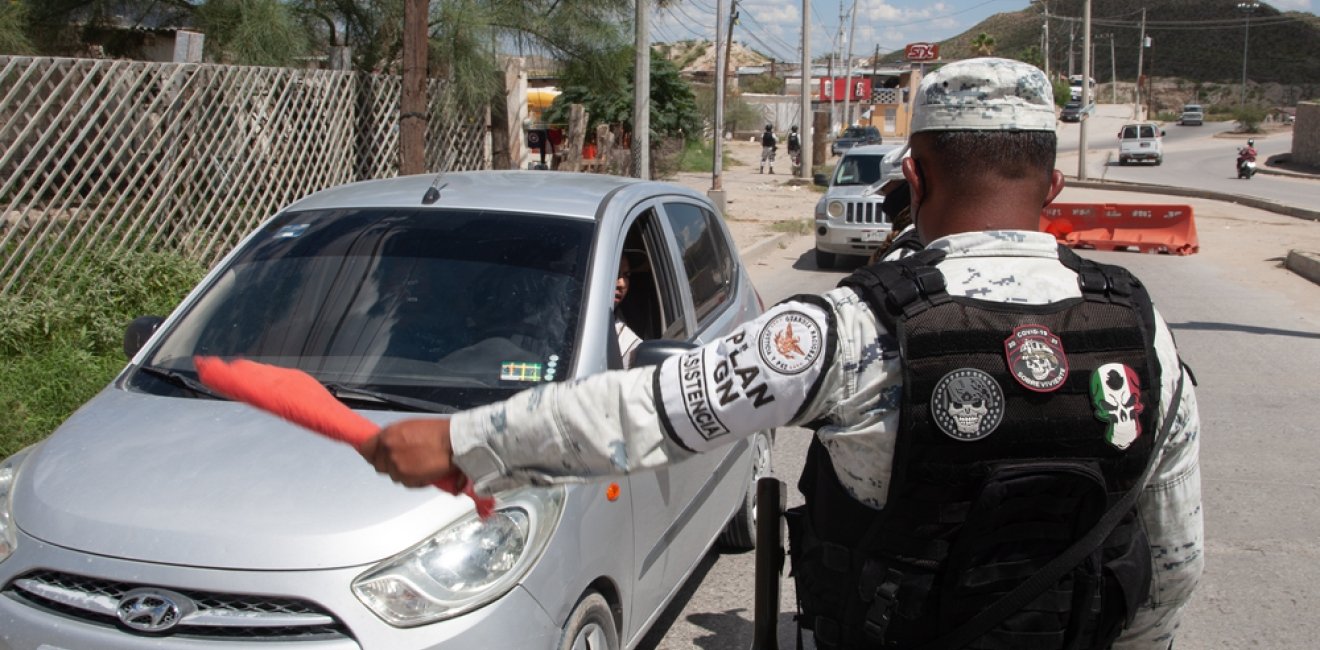
The military's complete and long-term integration into Mexico's public security is imminent. On September 19, 2024, the Chamber of Deputies approved a constitutional reform initiative regarding the National Guard, one of the 20 initiatives President López Obrador submitted at the beginning of the year. The proposed reforms, if implemented, would significantly modify the current constitutional order, which could have a detrimental impact on the future of Mexican democracy.
Proponents have presented the reform as a means of enhancing the capabilities of the National Guard, thereby contributing to the country's security and stability. In reality, this reform has the potential to disrupt civil-military relations significantly and could accelerate the process of militarization that began in 2006 with the "war on drugs." During López Obrador's administration, this process reached unprecedented levels and started to affect other spheres of public life. Let us now examine some of the most problematic aspects of the reform.
First, the National Guard is incorporated into the Permanent Armed Force of the Mexican State, effectively becoming one more military corporation alongside the Army, the Air Force, and the Navy. This results in an increase of 118,000 military personnel in the country. This means that the only police and civilian corporation at the federal level is no longer in operation. A significant issue arises if we consider that local governments are not investing in strengthening their police forces, which makes them dependent on this now military corporation to deal with common crimes.
Secondly, the National Guard will be granted the authority to investigate common crimes, a responsibility not currently held by some local police forces. This is a problem because the military cannot perform crime prevention, investigation, and prosecution tasks. Their expertise lies in warfare, not in responding to criminal incidents. Greater impunity and human rights violations will undoubtedly follow, as the military will also have jurisdiction over the National Guard, meaning that they will only be reviewed by other military courts, which are known for their lack of transparency.
Thirdly, the President will have the authority to utilize the Permanent Armed Forces (including the National Guard) in public security operations, contrary to the Inter-American principles on using the Armed Forces. Furthermore, there is concern that the legislative branch will issue laws regulating such participation. However, given the pro-government majority, these limits could be pretty weak. Indeed, we have observed this first-hand, as the National Inventory of Militarization (Inventario Nacional de lo Militarizado) has documented 87 reform initiatives that facilitated military expansion in the country.
Finally, the most concerning aspect of the proposed reforms is the modification of Article 129 of the Constitution, which currently serves as a democratic check on the Armed Forces' participation in times of peace. The reform stipulates that the Armed Forces can perform the functions in the Constitution and legislation derived therein. This effectively gives them carte blanche to perform all tasks they are ordered to do. In the absence of a legislative body that can provide a political counterweight, there is a risk of military expansion in various areas of the country's public life, not just those related to public security.
According to the National Inventory of Militarization, from 2006 to 2022, there have been at least 291 transfers of civilian functions and budgets to the armed forces, which shows that militarization is indisputable. Nevertheless, this reform completely changes civil-military relations, giving more power to military corporations and subordinating democratically elected authorities. Proof of this is that starting in 2022, the Secretaries of Defense (SEDENA) and the Navy (SEMAR) appearances before the Defense Committee of the Chamber of Deputies were canceled. They will have the third highest budget of the entire federal public administration, which will be increased because they will have 30 companies with majority state participation under their control.
In summary, the reform seriously threatens the rule of law and democracy in Mexico. Weakening civilian institutions and political checks and balances undermines the very fabric of democracy. The legislature's failure to fulfill its role of oversight and set clear limits on its involvement in security and other matters, coupled with the profound transformation of the judiciary, further exacerbates this threat. Mexico will face the total militarization of public security at the federal level. Given the proposal's ambiguities, there is a risk of total militarization in the country.
Author




